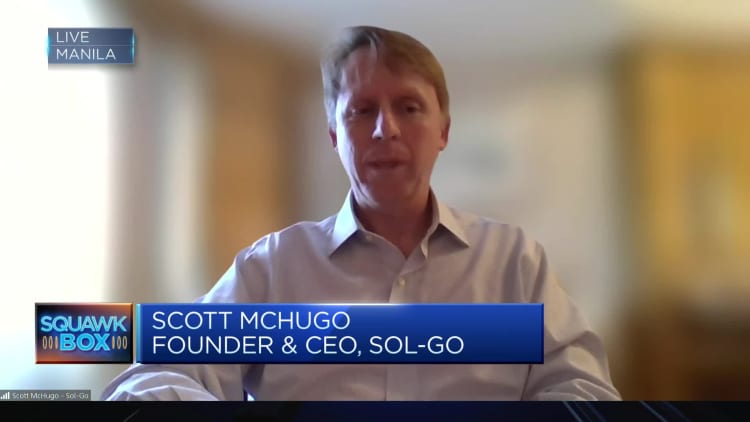Philippine Department of Trade and Industry Secretary Alfredo Pascual (R) and US Commerce Secretary Gina Raimondo attend a press conference in the Philippines on March 11, 2024.
Jam Sta Rosa | Afp | Getty Images
Chinese electric cars can one day drive on U.S. roads if there are enough government controls on software and sensors, U.S. Commerce Secretary Gina Raimondo told CNBC’s Eunice Yoon in an exclusive interview Tuesday.
“It’s possible. I could see a day when we have those vehicles on roads in the United States,” Raimondo said, “but not unless we have very significant controls and conditions around the software and sensors in those cars.”
In addition to using a battery instead of gasoline for power, electric vehicles today typically come with a suite of driver-assist software and in-car entertainment that can sync with users’ mobile phones.
That’s raised concerns about data collection — the White House in late February said the Department of Commerce would investigate whether imported “connected vehicles” from China pose national security risks.
“Because at the end of the day we must protect the American people from the threat that China poses,” Raimondo said, claiming that Beijing could access data about location or personal messages transmitted through Chinese-made cars.
“It doesn’t matter if those cars are made in Mexico or Beijing,” she said.
China’s Foreign Ministry has said that “the Chinese government has never asked and will never ask any company or individual to collect or provide data, information or intelligence located abroad against local laws.”
Concerns about Beijing’s potential access to data has also spurred U.S. legislators to consider a bill that could effectively ban TikTok from operating locally. The popular social media app is owned by China-based ByteDance.
When asked about the bill, Raimondo asserted her support for such legislation.
“I think we might be able to mitigate the risks [from TikTok] if we had enough tools, but we may not,” she said. “And I think a ban is something that also needs to be considered.”
Raimondo also characterized U.S. efforts to secure supply chains, especially in semiconductors, as “making significant progress.”
Promoting investments outside China
Raimondo was speaking on the sidelines of her two-day visit to the Philippines, in which she led a delegation of 22 senior executives from U.S. businesses and non-profit organizations.
The delegates have announced more than $1 billion of recently completed or planned investments in the Philippines, according to a Department of Commerce release.
“It’s an opportunity that we see and we welcome the opportunity,” the Philippines’ Secretary of the Department of Trade and Industry Alfredo E. Pascual told Yoon regarding U.S. efforts to “friendshore” or secure its supply chain.
“So is it something that we’re happy about yes of course we’re happy about it but we’re not cutting ties with any other country by so doing,” Pascual said in an exclusive interview. “China’s still our biggest trading partner overall. Our biggest source for imports is China. So that relationship goes on.”
Raimondo claimed her trips to the Philippines and other countries in Southeast Asia are “not about China” but about making the U.S. and its companies the “partner of choice” for businesses in the region.
Google, Mastercard and Microsoft were among the companies whose investments in the Philippines were highlighted in the U.S. readout.

Sol-Go, a U.S.-based solar panel company, was also listed. The company is building a new factory in a free trade zone in the Philippines to sell products worldwide, said Scott McHugo, CEO and chairman of Sol-Go.
He said the company has been in the Philippines since 2014 and has had existing relationships with local manufacturers, which prompted Sol-Go to pass over Vietnam and Turkey for this investment decision.
As for China, McHugo said that after the current project and its total investment of more than $5 million was completed in about 18 months, he would be “pretty open” to considering investments elsewhere including China, where he’s done business for well over a decade.

